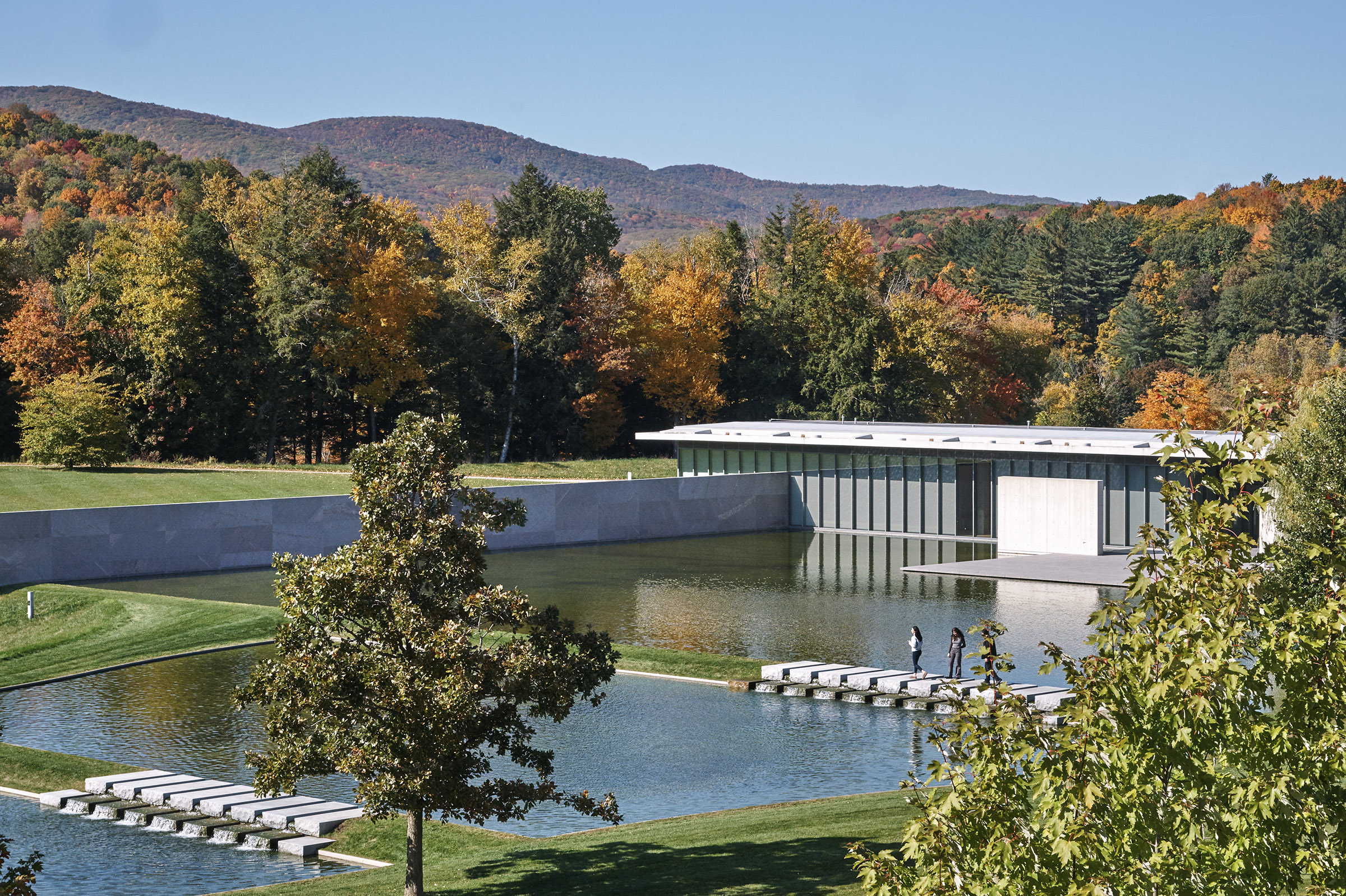SUSTAINABILITY
The relationship between art and nature has always been a focus at the Clark. We are constantly working to ensure that our sustainability initiatives will preserve our lands for future generations through integrating green practices in our architecture and campus planning. In 2016, the Clark Center earned a LEED Gold Certification from the United States Green Building Council, which recognizes achievement in sustainability initiatives incorporated into all aspects of the building’s design and construction.
Our commitment to sustainability is a promise that sets us apart, with rewards that benefit all visitors, both present and future. Each year creates new challenges in managing the Clark’s campus: as the climate changes, so does the landscape’s response.
HYDROLOGY
Several measures have been implemented to help offset water use, including a series of green roofs and a drainage system beneath the terraces. Water is captured and filtered into a holding tank, where it is recycled for irrigation in the summer and later used for a graywater system, which repurposes non-potable water in the winter months. Rain gardens carry surface water into the garden and slowly release it, recharging the site’s groundwater, helping to stabilize the water table and lessening the burden of stormwater runoff for many nearby streams and rivers.
The reflecting pool that is the centerpiece of the campus is part of a complex hydrological plan that reduces water consumption by one million gallons per year—a reduction of 50 percent. Water-permeable parking surfaces capture rainwater and snowmelt, feeding an in-building 175,000-gallon reservoir that flows into the pool to maintain appropriate water levels. On rainy or snowy days, excess water that collects in the reflecting pool can be recharged back into the ecosystem after it has been cleansed in the reservoir, ensuring that no contaminants enter the brook flowing across campus. The pool also connects to cisterns fed by rooftop collection basins that capture rainwater for use in the campus’s cooling tower and reservoir. Non-potable graywater is utilized for plumbing and irrigation.
THERMAL SYSTEM
The ground-hugging Clark Center absorbs heat through its thermal mass. A series of seven geothermal wells installed on the campus reduces the Clark’s consumption of electricity and heating resources by twenty-eight percent.
OTHER INITIATIVES
These programs, coupled with green roof areas on the Clark Center and the use of green materials (including LED lamps, a Lutron dimming system, and FSC-certified oak flooring) in the building projects herald a new level of environmental stewardship.
In 2017, the Clark launched “Clark Buzz,” a beekeeping initiative on the campus aimed to help grow the bee population in Berkshire County. More than 200,000 bees call the Clark's hives home. The implementation of our beehives dovetails perfectly with the Clark’s sustainability initiatives and brings further attention to the worldwide concern about pollinator health.
